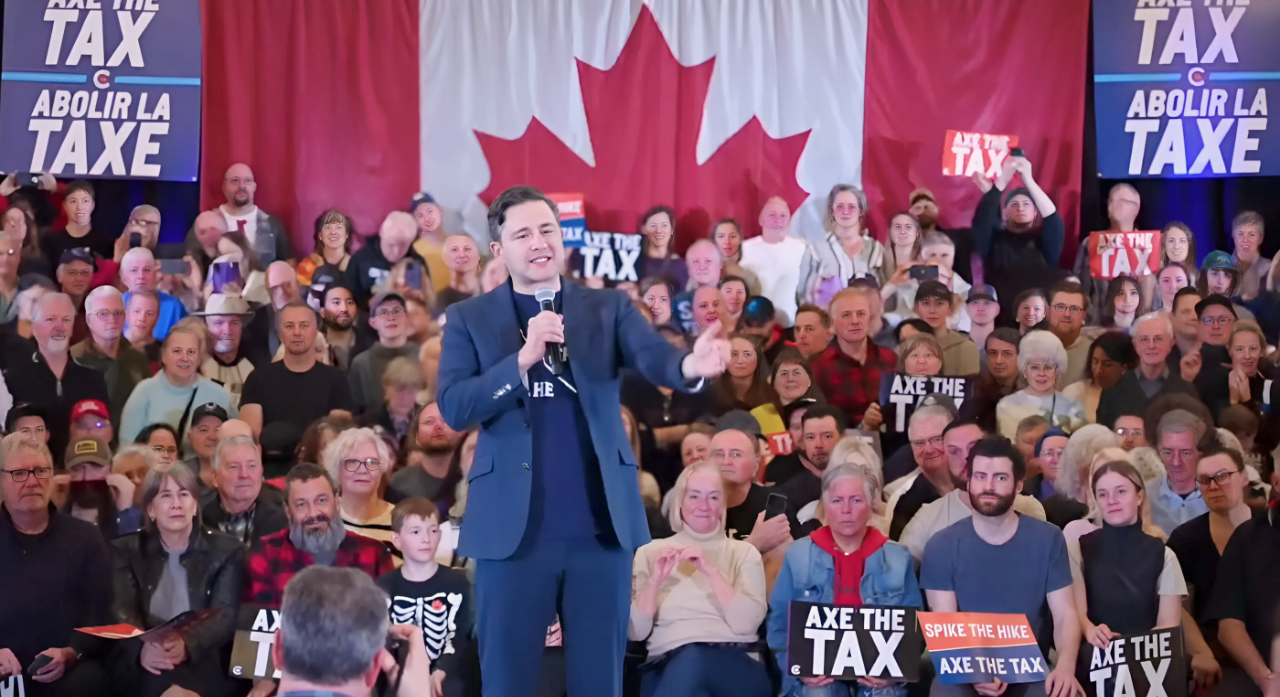The “Spike the Hike: Axe the Tax Rally” held by Pierre Poilievre yesterday, on Monday, April 1st, at the Vancouver Island Conference Centre in Nanaimo, British Columbia, stirred passionate discussions about taxation policies and government spending.
During his address, Poilievre criticized the current government’s taxation policies, particularly focusing on the impact of carbon taxes on everyday consumers. He argued that the taxes imposed on essentials like gas, heat, and food disproportionately affect Canadians, leading to increased costs of living. Poilievre highlighted the significant revenue generated by these taxes, particularly in British Columbia, where he claimed the government collects billions but only returns a fraction to taxpayers.
Emphasizing the potential consequences of further tax hikes, Poilievre warned that proposed increases would burden Canadians even more, potentially tripling the current tax rates if the government is re-elected. He urged British Columbians to rally against such policies and elect a conservative government that would repeal these taxes, offering what he described as a “better way.”
Poilievre outlined his alternative approach, advocating for viewing energy and resources as strengths rather than weaknesses. He criticized what he termed the “radical agenda” of the government, which, he argued, aims to control various sectors of the economy and limit resource extraction. Poilievre highlighted specific examples of sectors he believes are under attack, such as farming, forestry, and fisheries, emphasizing the need to support these industries for national self-reliance.
Furthermore, Poilievre discussed the potential of Canada’s natural gas resources in reducing global emissions by displacing dirtier coal. He criticized the government’s failure to capitalize on international demand for Canadian natural gas and proposed initiatives to boost domestic production and exports.
Beyond economic policies, Poilievre addressed broader societal issues, including crime rates and drug addiction. He criticized what he described as lenient approaches to repeat offenders and proposed stricter measures to address crime, emphasizing the need for safer communities.
In addition, Poilievre touched upon housing affordability, healthcare, and education, outlining his plans to address these challenges through targeted policies aimed at reducing bureaucracy, increasing housing supply, and supporting healthcare workers and immigrants.

